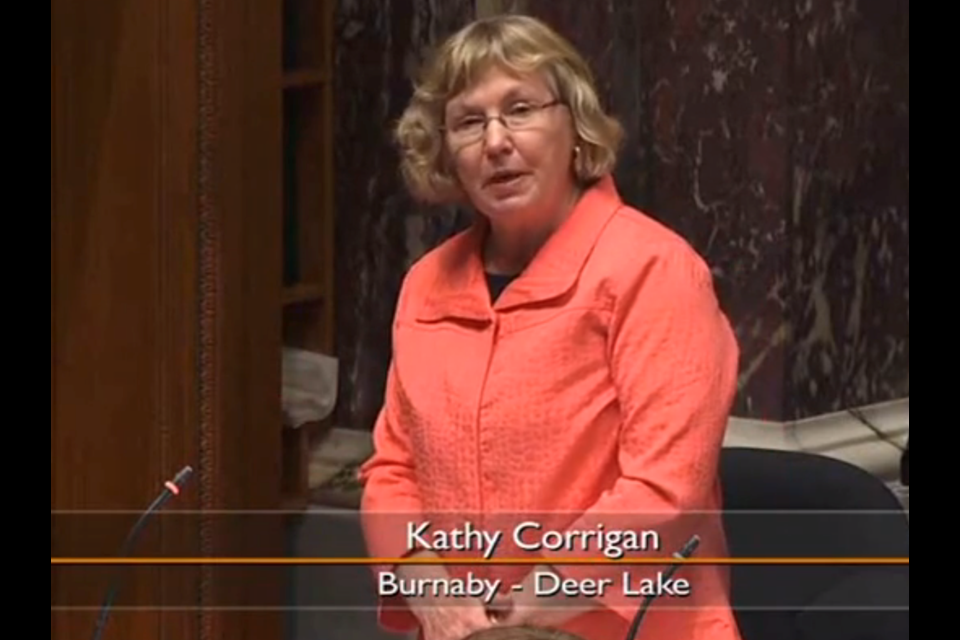Burnaby MLA Kathy Corrigan is raising concerns that the provincial government is using a loophole to delete documents and hide them from the public.
On Wednesday in the legislature, Corrigan, the NDP MLA for Burnaby-Deer Lake, pointed to an email connected to the Burnaby Hospital controversy that came up missing after a non-profit association filed a freedom of information request looking for it.
"This organization requested a series of damning emails exposing a B.C. Liberal strategy to manipulate the community consultation report on Burnaby Hospital for the political benefit of the B.C. Liberals," Corrigan said in the legislature. "The association was told the records had been deleted because they were 'transitory.'"
According to the provincial government, transitory is a term that applies to some drafts and working materials, mainly ones that are temporarily useful and may be used to prepare a "more ongoing record." However, drafts and working materials related to program delivery or operations, decision-making or government activity are not transitory, and should not be deleted. In fact, the government is required by law to retain those records and release them, where applicable, in accordance with the Freedom of Information and Privacy Act.
The problem, according to Corrigan, is the government is using the "transitory" classification to delete records they don't want the public to see.
The email in question was sent to then-health minister Margaret MacDiarmid's personal email account, and according to Corrigan, MacDiarmid admitted it was wrong and said she would put it back in the government system. (That email was also leaked to the NDP in fall of 2012, which originally blew open the controversy around the hospital consultation committee.)
It was the B.C. Freedom of Information and Privacy Association that made the freedom-of-information request, expecting to find MacDiarmid's email but was told it had been deleted as it was considered transitory. Executive director Vincent Gogolek characterized the term transitory as a magic word to make documents disappear.
"Click your Guccis three times and say 'transitory,' and we're going to be back in Kansas," he told the NOW. "It's ridiculous."
MacDiarmid wasn't supposed to be using her personal email account for government business, Gogolek said.
"It should all happen on government email, on government servers, and be preserved as records, as required by law," Gogolek said.
Government accountability suffers when documents are mischaracterized as "transitory" and deleted or aren't searchable because politicians and bureaucrats are communicating below the radar with their personal email accounts, he explained.
"Freedom of information is one of the pillars of democracy," Gogolek said. "It's how we hold government accountable for how they are running things and how they are spending our money."
Gogolek also pointed to an unrelated freedom-of-information release, where documents showed that a senior government bureaucrat instructed other staff, using red font, to "delete all drafts of the materials and email correspondence should be treated as transitory."
"That's just draw dropping," Gogolek said. "This is a senior official saying let's treat this as transitory.
"We have other problems of records disappearing," he added. "There's no sanction on somebody doing this."
MacDiarmid has since left politics, but the NOW tried contacting her through her personal email account, the same one used by the Liberal's hospital committee, but we did not receive an immediate reply, nor was Andrew Wilkinson, minister of citizens' services, available for an interview. However, Wilkinson replied to Corrigan in the legislature on Wednesday and stated she was "fully aware" that government has some of the most effective and wide-reaching freedom-of-information legislation in the country.
"We have a statutory framework for both transitory and recordkeeping rules. It is respected throughout government, and it is managed by professional staff in the civil service," he said.



